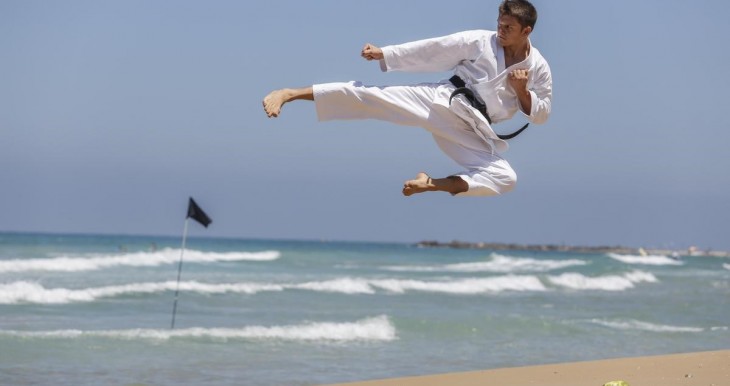“One time before the World Championships, while I was working at the Haifa Port, I was hit by a heavy instrument,” Artyom recalls. “I was lucky to have a helmet, and only had to rest a week or more before the competitions. I was a new immigrant in Israel, and The Jewish Agency’s Asia Chiarsky helped me get financial aid so that I could go to the World Championships abroad, since the sports associations of the Israeli Culture and Sport Ministry do not provide any assistance. The money I received as a result of the efforts of The Jewish Agency allowed me to fly to the competition, get a hotel room, and participate in the competition.”
Asia is used to helping new immigrants—it’s her job. But in this case, the modesty and kindness of the new immigrant, Artyom, was particularly special. It was evident from the eyes that looked at her. Since then, Artyom has become like a member of her family.
Aliyah is The Jewish Agency’s historic mandate to bring Jews home to Israel. From August 2016 to July 2017, The Jewish Agency facilitated the Aliyah of a total of 27,770 Jews from around the world, including 15,720 from the FSU (7,435 from Russia and 6,345 from Ukraine).
Pre-Aliyah planning is essential in assisting young Jews like Artyom in places such as the FSU to reach a decision on whether Israel offers them a better life. Once new immigrants arrive in Israel, Jewish Agency absorption centers and ulpanim (immersive Hebrew language programs) ease their integration into Israeli culture and society. The Jewish Agency also offers young Aliyah programming and financial assistance for college- and army-aged olim, singles, and young families.
Artyom, 28, immigrated to Israel four years ago with his wife, Ella. He runs two martial arts classes in the Haifa area. He won his first two martial arts world championships for his native Belarus, and his third championship as a member of the Israeli national team.
Born in Minsk, Artyom has been practicing martial arts since he was 6 years old.
“My parents would take me to martial arts training clubs,” he says. “I fell in love with karate.”
In 2007, Artyom enrolled in university, where he studied economics. He met Ella, my wife, who wanted to make Aliyah because she has roots in Israel.
“My wife knew the Hebrew language better than me, even though we studied together in Belarus,” he says.
In Israel, Asia would introduce Artyom to Avi Buckler, a martial arts competitor who was deaf from birth. Avi “changed my life,” Artyom says.
“Avi is a warrior with a huge heart,” he says. “He is always smiling, and he is a close friend. He introduced me to the director of a martial arts school, Yoel Ben Harosh, because I wanted to continue studying and practicing martial arts in Israel. Yoel is a great teacher.”
At his third World Championships—and his first representing Israel—in Serbia in 2015, Artyom’s friends from the Belarusian national team asked him, “What are you doing in Israel’s uniform?” He described his journey to his former teammates, saying, “My life has changed. I am an Israeli.” He proceeded to win a gold medal in martial arts and a bronze medal in kata at those World Championships.
Now, while Artyom still competes and trains in martial arts, he has three jobs. He works in a pharmaceutical factory and teaches karate at two venues, a youth club and a community center in Kiryat Bialik.
“I hope that in the future, I can open a club of my own that will raise the next generation of martial artists,” he says.
In fact, when he won the medals at the 2015 World Championships, Artyom received a letter from Israel’s president that stated, “Congratulations, and continue to train children.”
“When I look at my life before Aliyah,” Artyom says, “I remember that I competed for Belarus and showed respect for the country, but was not treated with respect in return. What do I want to do today? Continue to train the next generation, so that they can gain confidence and earn the respect they deserve.”
This story was originally reported by Nathan Roi for The Jewish Agency for Israel



 0
0


